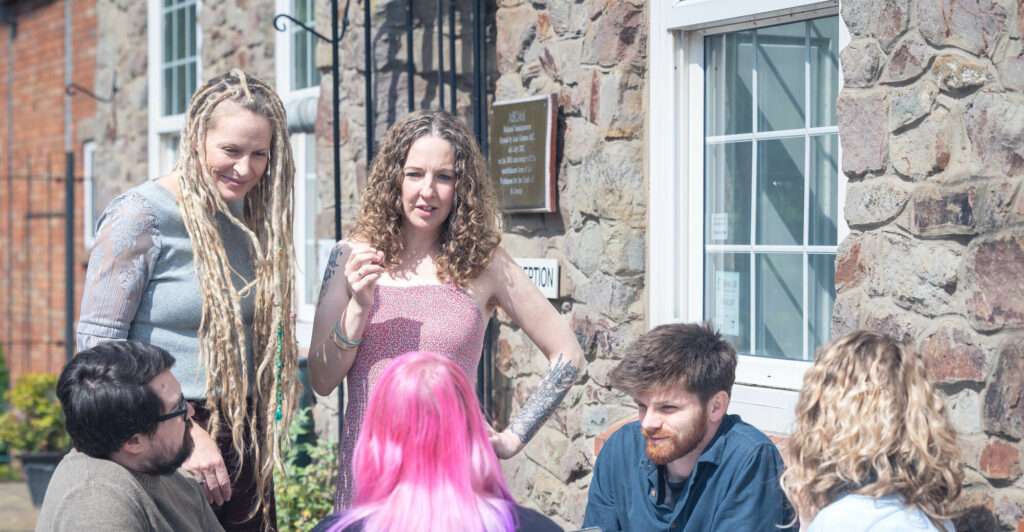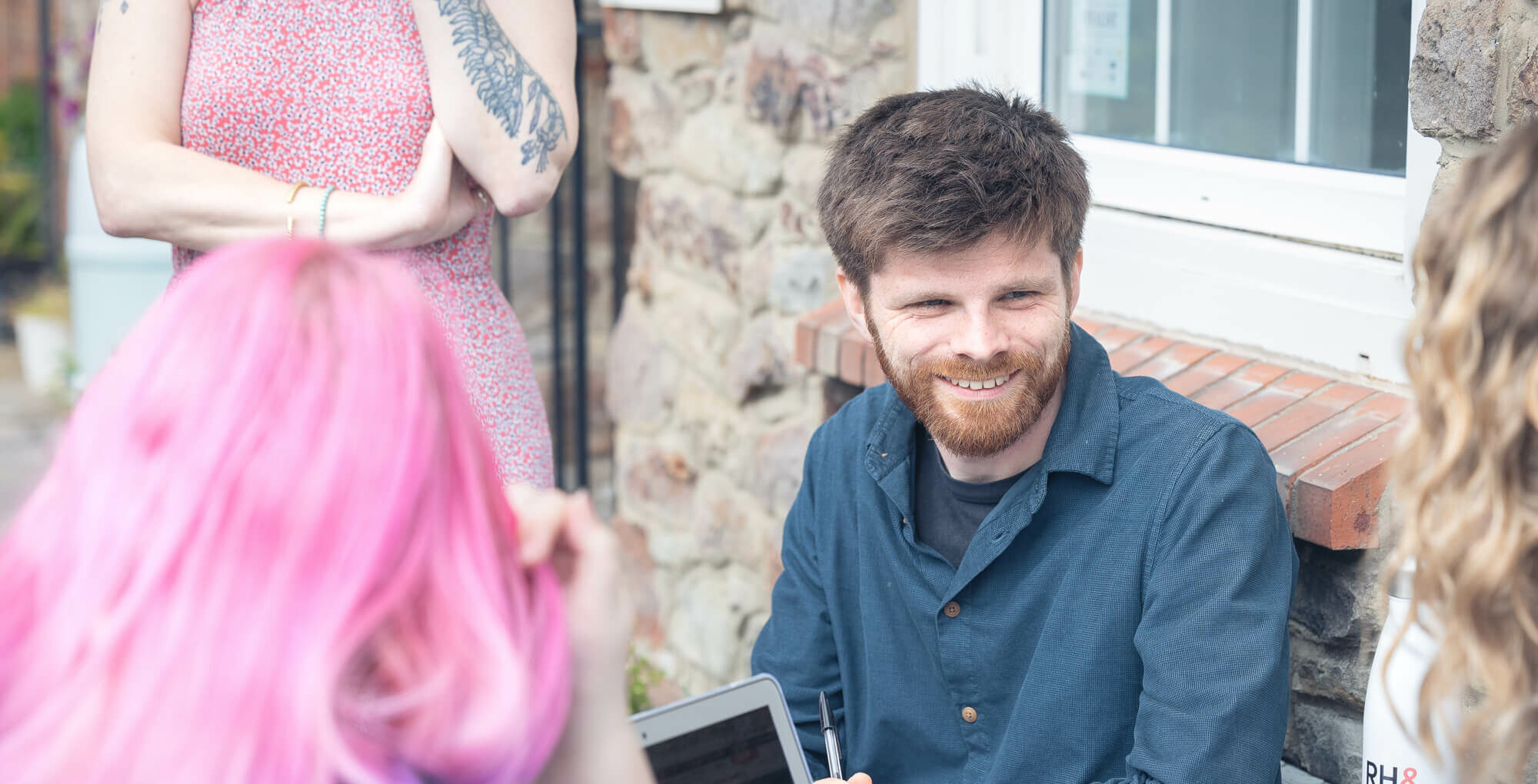
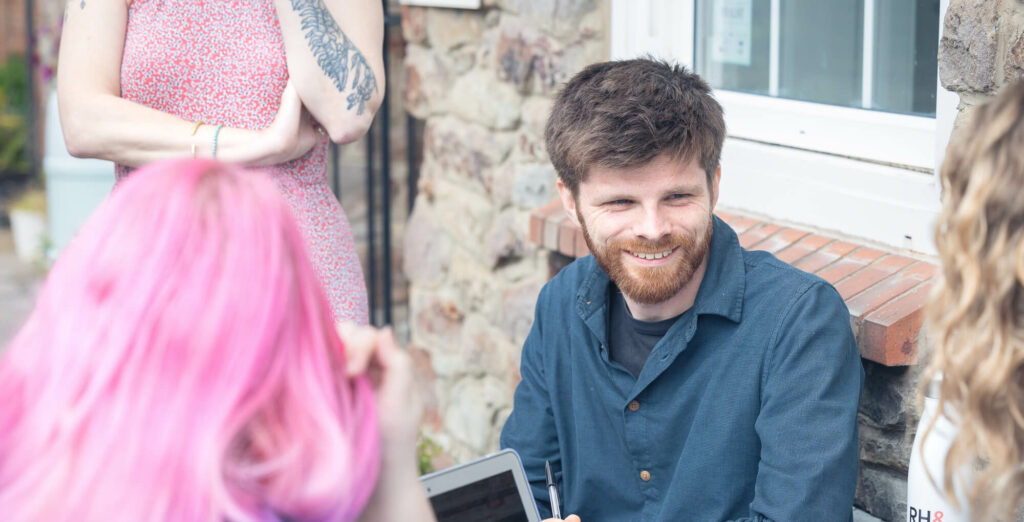
How can you blog for my business if you’re not an expert in my subject?
App developers, financial modellers, commercial mathematicians – all examples of clients we’ve worked with. And yet we’re not experts in any of these subjects. So how do we do it? The answer is as much about the nature of blogging as it is about our own skills and experience.
TL:DR
- It all started in a newspaper office
- Why experts don’t usually make great marketers
- The added extras that a copywriter will bring to your blog
- How we create expert-led content for our clients
- A case study: Actual Experience, experts in human experience
It all started in a newspaper office
Our founder, Rin, started her career as a journalist. Cutting her teeth on a daily paper meant having to very quickly get up to speed about all sorts of subjects, doing research and interviewing experts in order to put together a compelling story – all to a tight deadline.
This journalistic approach underpins the way that we write content here at RH&Co. We don’t profess to be experts on embedded banking or leadership development or clinical psychotherapy. But we are experts at drawing out a story. Give us a few hours and access to an expert and we can get ourselves up to speed enough to write a convincing blog post on literally anything.
But that’s only part of the story. Because whether or not someone can blog about a subject they’re not an expert in might not actually be the most important question. Perhaps it’s more important to think, “How can I blog for my business if I’m not an expert at blogging?”
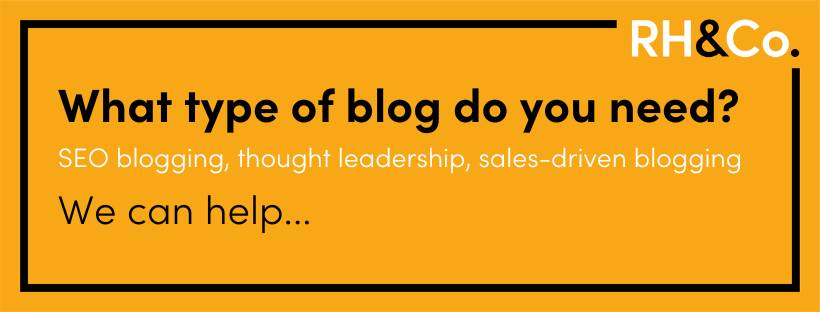
Why experts don’t usually make great marketers
The problem with being an expert is that you’re usually too close to your own subject. You know so much that it’s hard to tease out what your audience might be interested in and what is unnecessary detail that’s just going to distract them from what’s important.
A lot of experts try to cram too much into one blog post, not thinking of content in a holistic way. They don’t think strategically about what details might suit someone who is just thinking about a service versus someone who is getting ready to buy.
Experts often use overly complex language and too much jargon. They don’t always have the right understanding of tone and personality when it comes to writing, falling back on formal or even academic writing.
And on top of all of that, experts are usually very, very busy. Which means blogging falls down the to do list and becomes inconsistent at best. And that, as any marketer will tell you, is not going to deliver real results.
“A good copywriter knows how to get people’s attention in just a few words while also hitting SEO targets.”
The added extras that a copywriter will bring to your blog
As well as helping you to tease out the details of your expertise that will add the most value to a specific blog post, a copywriter will add a bunch of other important marketing elements.
Let’s start with the title, since that’s where – as David Ogilvy once said – you spend “80 cents of your dollar”. If your title isn’t 100% engaging, no one is going to read any further. A good copywriter knows how to get people’s attention in just a few words while also hitting SEO targets.
Then there’s structure. A copywriter knows to use page formatting tools such as subheads, bullet points, pull quotes and more to stop the ‘off-putting wall of text’ phenomenon that so many expert blogs suffer with.
They’ll also be able to craft a call to action that suits the post. Whether that’s a gentle and directional ‘read more posts in this area’ on a top-of-funnel post, or a firmer and clearer ‘get in touch for a quote’ on a sales-driven post.
And that’s all without even mentioning the content strategy that should come well before any briefing or writing even starts. If you’re going to work with a copywriter to create expert-led content, it’s essential that the work is guided by a clear strategy.
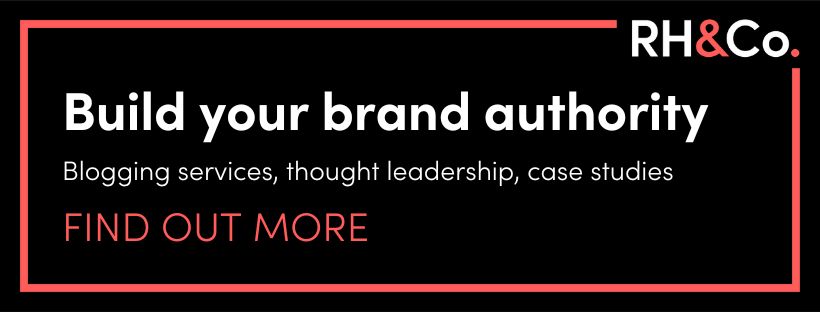
How we create expert-led content for our clients
Our blogging projects all start with a discovery stage where we get to know our new client. Who they are, what they do, what makes them special. The core messages they’re hoping to communicate and the goals they have for their content.
We talk about their audience too, of course, looking for the value that our client might be able to add at every stage of the customer or client journey. From this we can create a strategy with a rough editorial calendar that will direct future briefings.
From here, we set out a monthly briefing schedule. In these meetings we interview their experts, drawing out the stories in the data, the emotional connection in the list of facts, stripping out any needless jargon to leave only what supports the core messaging.
Ultimately our job is to take a client’s expertise and make it more succinct, punchy and powerful than it would otherwise be. We don’t need to be experts because that’s your job. Our job is to draw out your expertise and then package it up using precisely the right words to establish that expertise within the minds of your audience.
A case study: Actual Experience, experts in human experience
Actual Experience is a B2B tech business providing human experience management for service providers and their enterprise clients. Their unique analytics capabilities pinpoint the causes of variability and poor experience within the digital ecosystem, enabling digital leaders to prioritise investment in an evidence-based way.
Yes, we were baffled by that at first too. But as we worked with their founder, their marketing manager and their technical lead, we began to build up a solid picture of their expertise.
Marketing Manager Vaq Hussain said: “We’re in a complex and technical industry. With no prior experience of our expertise, Rin and her team quickly took on board what we do and how it helps our customers add value.”
Over the course of the project, we created a number of white papers, supplemented with blog posts and social sharing copy – all of which met the client’s high standards in terms of both expertise and readability.
“The process of developing a white paper with Rin and her team was simple and painless,” Vaq said. “They delivered a really fast turnaround following interviews and research, and the final copy required minimal amends.
“I would say Rin Hamburgh & Co’s strengths are not just in their writing. Rin and her team are excellent listeners. Finding the important details in what we were telling them, understanding the relevance to our audience and converting it to a usable content piece is what impressed me the most.”
Back to hompeage




